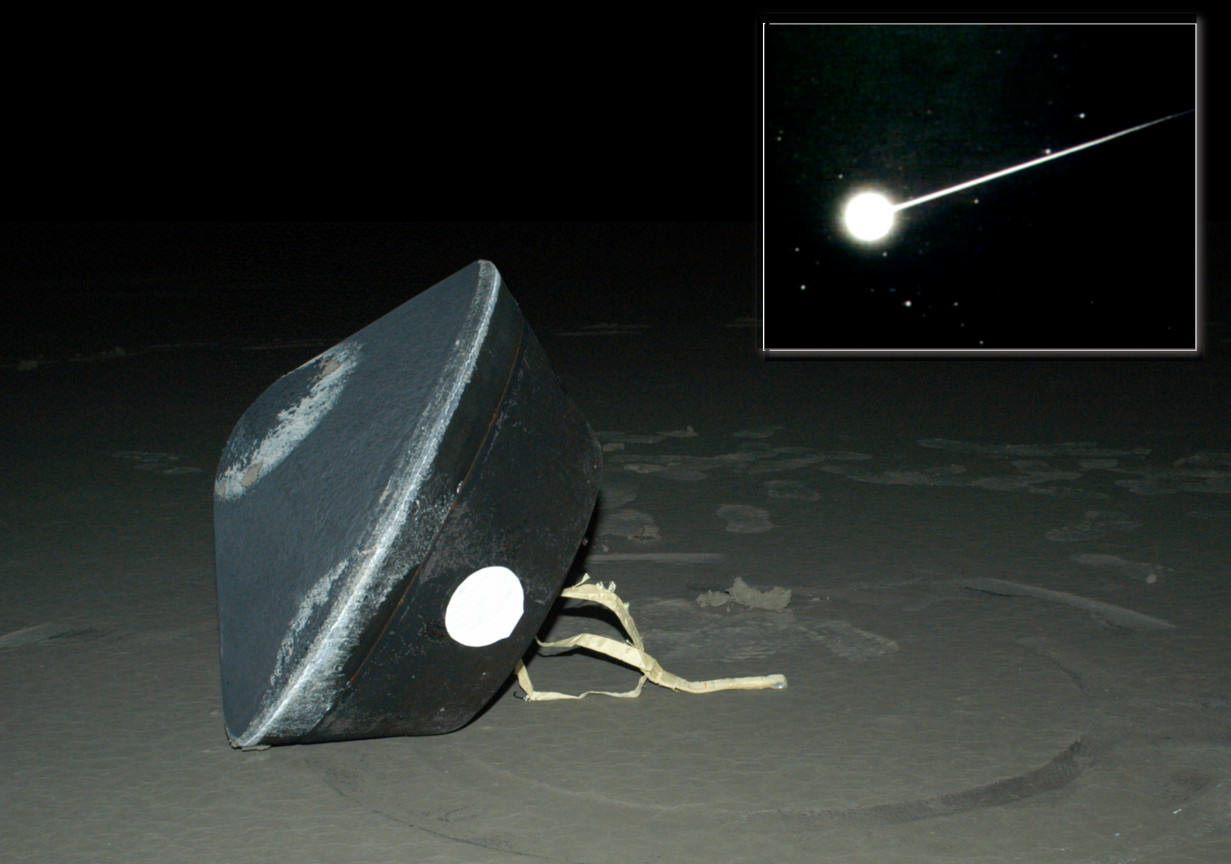alter-ego wrote: ↑Sun Oct 01, 2023 3:23 am
Avalon wrote: ↑Sun Oct 01, 2023 2:20 am
I hope someone is able to answer my question even if I am asking it a day late...what does the "sun" emblem mean and why was it not charred upon re-entry?
I wondered about that too. Since you asked, I looked into it and can answer your question.
I couldn't find what the emblem meant, but it was attached to the capsule by one of the two people that first showed up at the site, so, yes, no way that would have survied reentry. The chute was folded up prior to the photo that shows the sun-like emblem. Reviewing the
sample return video starting around 1hr 20m, you'll catch the attachment. You can easily see yellow emblem in the after picture. Helicopter circled the site many times, so I found the same views by the using the foreground vegetation.
Prior to emblem attach.png
After emblem attach.png
Thanks for that. Avalon asked a great question!
I don't know about "easily see"ing the yellow emblem in your second image, but that spot on the sample return capsule (SRC) is indeed different, so that must be it.
I googled for a good 30 minutes for an explanation of that "emblem" and found nothing, but to me I thought the "emblem" looked bolted on, but maybe that's an illusion:

- osiris-rex src emblem closeup.png (142.39 KiB) Viewed 22927 times
But I did discover that this SRC is identical in design to the one used on the Stardust that touched down in 2006 with dust samples from comet Wild 2:
Note the similarly placed "emblem", though here it is a pristine and featureless white!
See more here:
https://spaceflight101.com/osiris-rex/o ... n-capsule/
OSIRIS-REx adopts the Sample Return Capsule design from Stardust – a NASA mission to comet Wild 2 where it was to collect dust samples. Stardust lifted off in February 1999 and flew by asteroid Annefrank ahead of the flyby encounter of Wild 2 in 2003. The spacecraft was tasked with the collection of sample of the cometary dust of Wild 2 as well as cosmic particles that were planned to be captured in an aerogel collector.
The spacecraft returned to Earth on January 15, 2006, slamming into the atmosphere at a velocity of 12.9 Kilometers per second – the fastest re-entry speed ever achieved by a man-made object. Sticking to a steep entry profile, the capsule experienced a deceleration of over 30Gs and slowed from 36 times the speed of sound to subsonic speed in just under two minutes. During the entry process, the capsule endured temperatures of up to 2,900°C.
 Back from Bennu
Back from Bennu